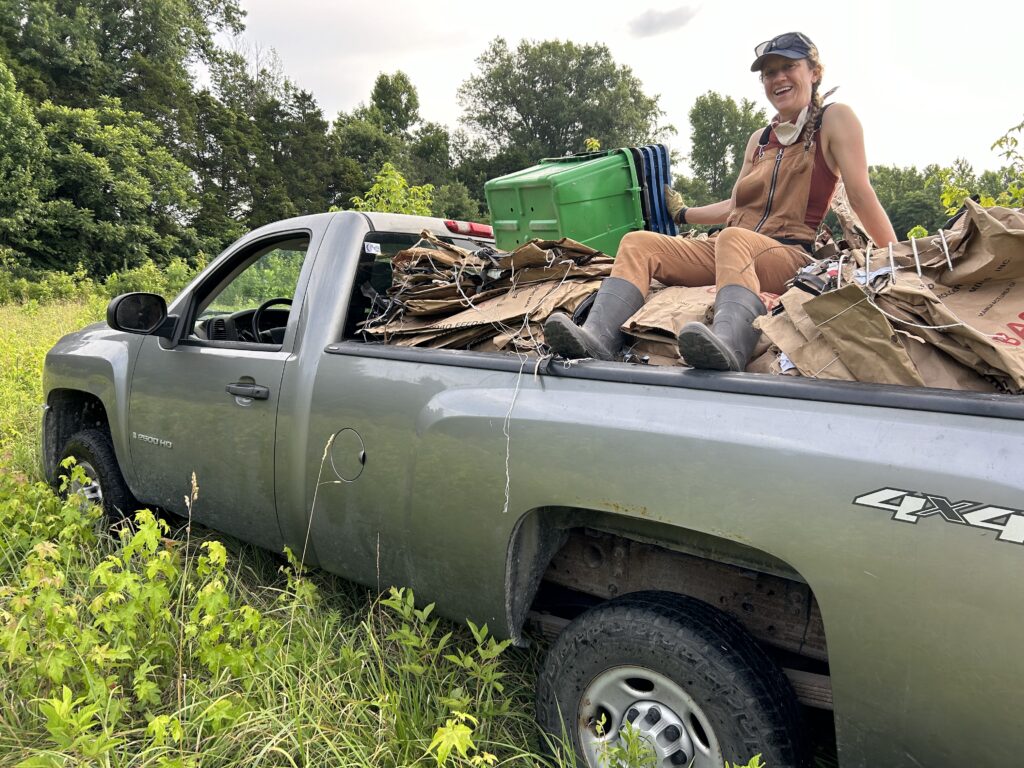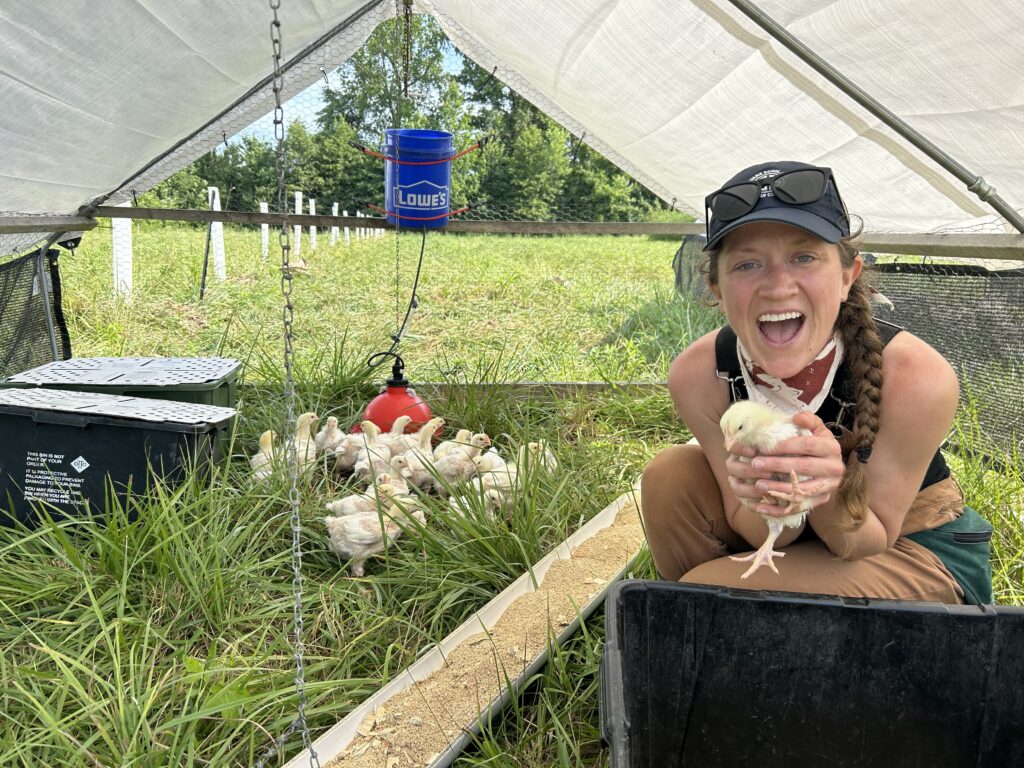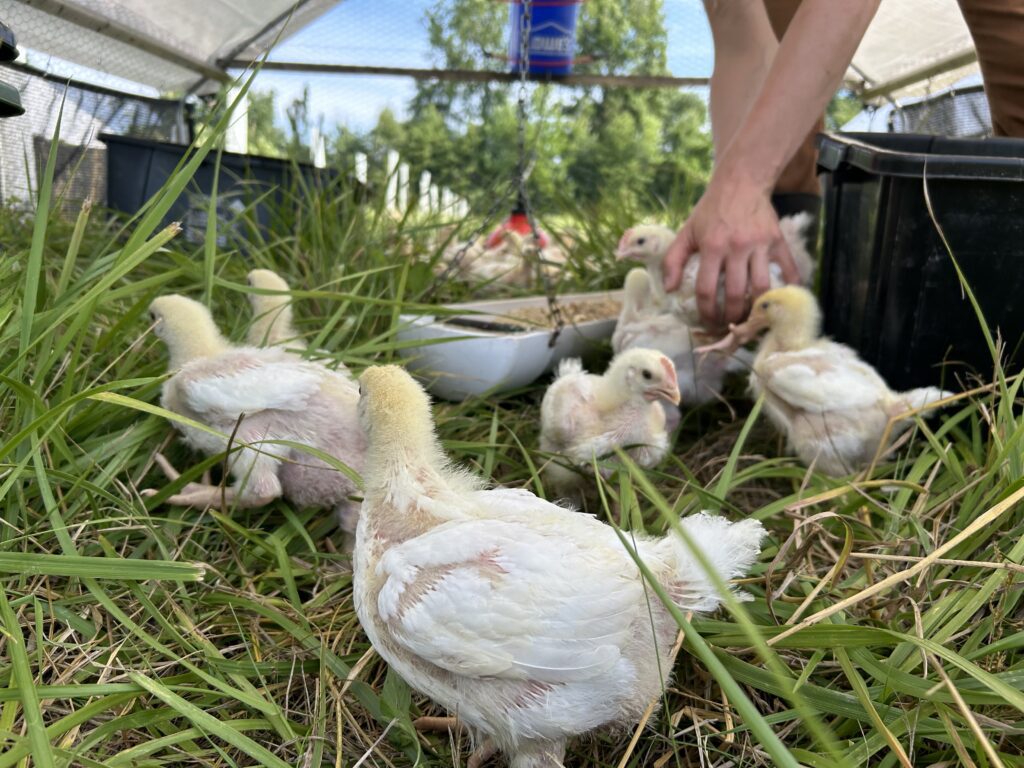Nobody Does it Alone: Lessons from On-Farm Training
Serena Larkin has worked on multiple farms seasonally, including Nightfall Farm in Indiana through the Savanna Institute, but she’s the first to say she’s not a farmer.
“Food and farming has always been attractive to me, but probably not in a realistic sense,” she said. “I didn’t grow up on a farm, so I romanticized it.”
Serena explains that her interest in food, farming, and the climate started early in life with a subscription to Kids Discover magazine. “The climate issue was one of my favorites. And the food issue, and the one about Pompeii – that apocalyptic theme. I pored over those issues thinking, ‘okay, so what do we do about this?’”

Pursuing answers to that question remains a motivating force in Serena’s life, leading her to a career in climate policy research. But her interest in food and farming stuck with her.
“The farming is more of a personal draw,” she said. “It’s not something I get to do for my day job.”
Savanna Institute’s On-Farm Training Program (formerly the Apprenticeship Program) gives beginning and aspiring farmers real-world experience on working agroforestry farms, and was an ideal opportunity for Serena to contribute to better food and farming systems while on a sabbatical from her job in Chicago.

The ten weeks Serena spent at Nightfall Farm with owners Liz and Nate Brownlee had her working new muscles. “We were carrying 50-pound feed bags and I remember telling Liz and Nate, ‘I don’t know if I can do this!’ But by the end of the summer it was nothing.”
Nightfall Farm is a pasture-based livestock farm in southeast Indiana, where Serena helped with rotational grazing. The Brownlees graze meat chickens, laying hens, pigs, turkeys, and sheep on about 50 acres of young silvopasture, which includes about 1,000 native and cultivar trees and over 2,000 feet of shrub willows.
Nightfall is one of 17 operations that participated in the On-Farm Agroforestry Training Program in 2024. The program offers newcomers or longtime ag professionals opportunities to immerse themselves in the day-to-day work and joy of agroforestry. Each trainee’s experience is unique to their interests and their host farm. In addition to the online course materials and on-farm experience, trainees participate in monthly cohort calls, write a reflection about their on-farm experience, and participate and attend local field days. In 2024, 18 individuals like Serena participated in on-farm training.
Near the end of Serena’s ten weeks, the Brownlees invited farmers and trainees from nearby mentor farms to join them for a conversation about the ups and downs and in-betweens of their work. The interconnectedness of agroforestry practitioners across the Midwest resonated with Serena.
“If there’s one big takeaway from the various farming experiences I’ve had and continue to seek out, it’s that nobody does it alone,” she said. “And it’s not something I’d want to do alone, either.”
This focus on connection and community is one reason why Serena is a self-described “Savanna Institute fangirl” and monthly donor. “You’re going hard with the science, but there’s also a priority on the people,” she said. “And there’s a priority on a healthy internal culture, which definitely spreads to the communities that you’re building.”

Serena’s future in agroforestry may not look like other trainees who go on to run their own farms or become technical assistance or natural resource professionals, but she plans to continue farming seasonally, building the perennial agriculture community, and incorporating what she’s learning into her policy work.
“The human part, connecting different groups and people and farms – building that connective tissue – is something I really enjoy,” she said. “Maybe that’s my piece of the puzzle.”
“I may never be a full-time farmer, but I feel like I’m a member of the community.”
Sponsor a Trainee
You can provide experience and technical education for aspiring agroforesters while building the agroforestry community. Contact Sarah French, Director of Development, at [email protected] to learn more.
